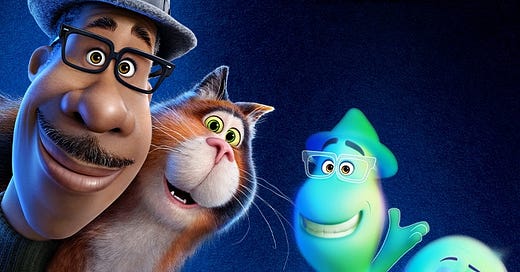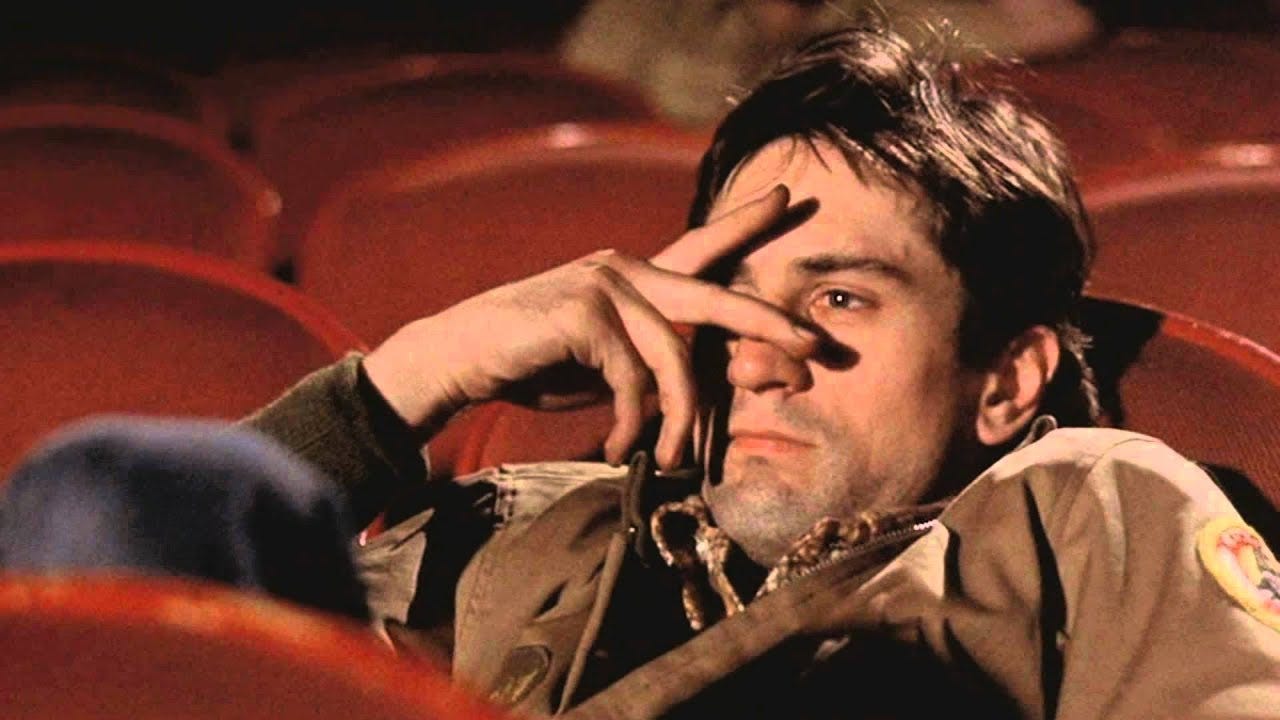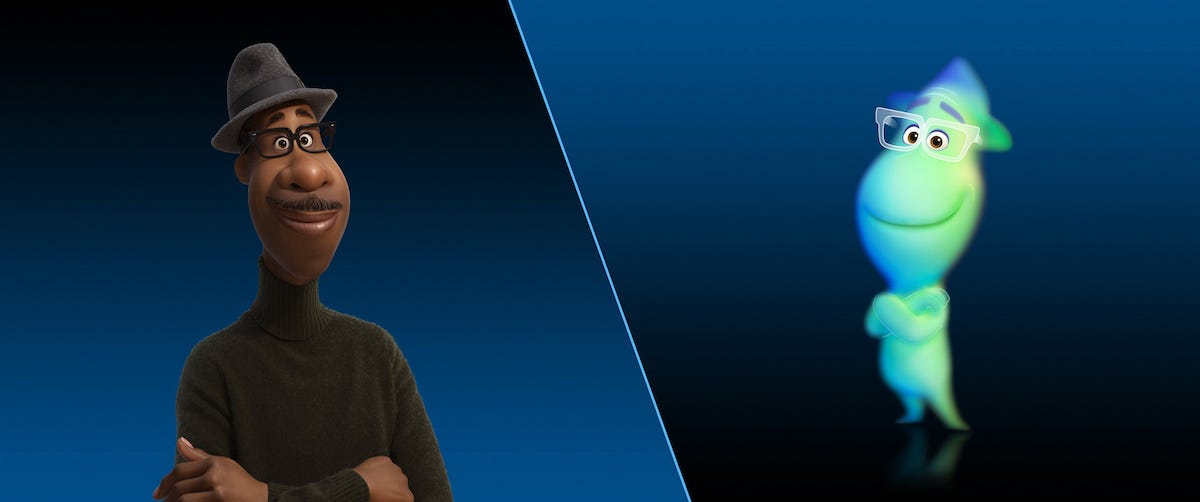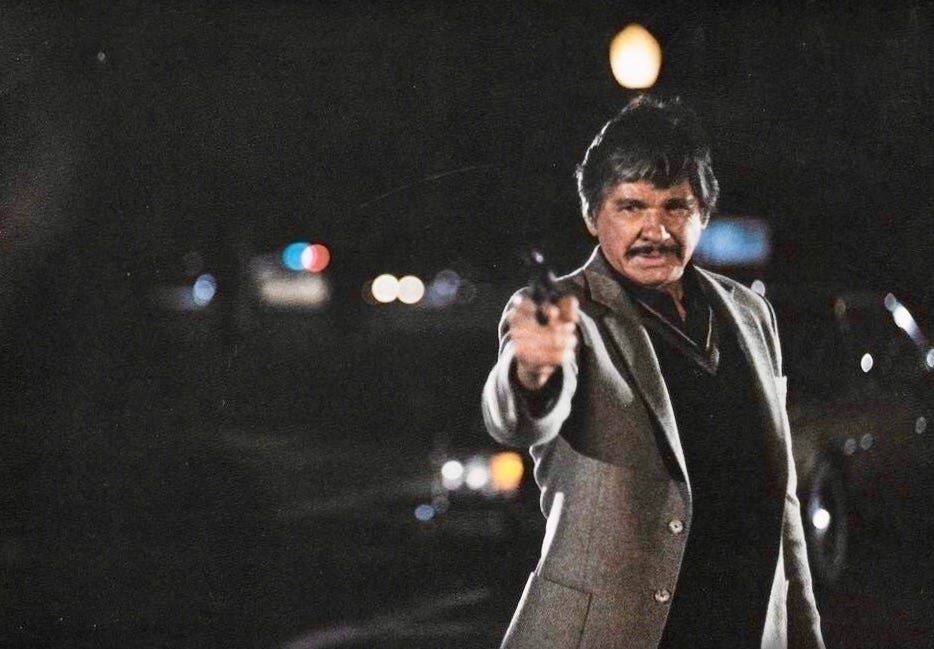‘Soul’ Reviewed. Plus: Will It Be a Happy New Year for the Movie Biz?
And make sure to check out '10 to Midnight' on HBO Max!
OK, so, 2020 is over, finally. Hooray! We made it! What does the future hold for movies?
You could paint a pretty dark picture. Flix Brewhouse CEO Allan Reagan suggested as much when he told CNBC that theater attendance may take a permanent 15 to 25 percent hit as a result of both the Coronavirus and new patterns of cinematic consumption. Between WB moving their entire slate to HBO Max and continued uncertainty over the coming year’s release schedule—to say nothing of the government’s inability to deliver the coronavirus vaccine in a timely and efficient manner—odds are that 2021 is going to look more like 2020 than any movie lover (or theater owner) might like.
You could, alternately, paint a relatively pretty picture. Look at the how the Chinese box office has rebounded in that nation after the disease was brought under control and new product hit movie theaters. The movies remain a relatively affordable way to kill a couple of hours; people like seeing big action flicks on big screens and with big sound systems; and the communal experience is one that many people are loathe to forsake, even in the age of texters and tweeters.
Those of you who have been reading this newsletter may have grown tired of my treatment of theaters and films as inextricably linked, but the simple fact of the matter is that they are. Eliminating the theatrical window means massively reducing revenue for the studios; less revenue means cheaper productions; cheaper productions has a whole host of deleterious consequences, ranging from job loss to overcrowded video on demand (VOD) “shelves” to the Chinese believing they can extend their commercial dominance into the world of cultural dominance. There’s no real upside to movie theaters in the United States going away, despite what the techno-triumphalists will tell you: it’s all varying shades of bad.
And not just for Hollywood.
So, if you’re the resolving type, maybe do us all a favor and resolve to set foot back in theaters this year. Check out one of those WB titles on an IMAX. Head to an arthouse and watch an indie production that you might be able to see on VOD already anyway. If you don’t support the things you like—by they movie theaters or Bulwark+, a $10 monthly membership to which helps ensure that this newsletter and its sister podcasts keeps hitting your inbox—they have a tendency to disappear.
Soul Review (Disney+)
The marriage montage in Up. Goodbye, Boo from Monster’s Inc. Bing Bong’s fade out in Inside Out. And now a twirling seedpod in Soul.
Pete Docter, the director and writer* of the above films, is an emotional terrorist, a master manipulator of our feelings whose sole purpose in life—what gives him his spark, you might say—is figuring out how to loosen your tear ducts and get the waterworks flowing. If you felt a little pang in your chest at the mention of one, or all, of those scenes—and I have a sneaking suspicion you might have, if you’ve seen them and you aren’t dead on the inside—you know what I’m getting at.
In Soul, Docter is reminding everyone out there that life is about more than accomplishing a goal or achieving a dream; indeed, many of us may not know what our goals or dreams really are. Joe (Jamie Foxx) is a middle school band teacher who finds himself in a bit of a bind: after finally getting a full-time gig teaching kids, he’s offered a dream part-time gig, playing piano for Dorothea Williams (Angela Bassett) as part of her quartet. This is it, this is the thing he’s been hoping for, this is the thing he can finally die happy after doing —
— which makes it all the more unfortunate when he steps through an open manhole and winds up on life support before he is able to play with her. Unable to take that final trip into the great beyond, Joe gets a bit lost in the afterlife, which causes problems for an extra-dimensional accountant named Terry (Rachel House). Desperate to get back to the real world and play that set before time runs out, Joe is given the task of helping 22 (Tina Fey), an eternally unborn soul, discover her spark and get out of the before-life and into the world.
Plus, there’s a funny cat and some hippies!
The central idea of Soul, the importance of finding happiness outside of defining oneself by what one does, echoed another film I watched this week, Whit Stillman’s Christmas movie, Metropolitan. Two young men encounter an older fellow from their social set, and query him about whether or not their particular stratum is doomed to downward mobility. “We just fail, without being doomed, which is worse,” this older man replies. “I’m not destitute. I have a job that pays decently. But it’s all mediocre and unimpressive. The acid test—the acid test—is if you get any pleasure from answering the question, ‘What do you do?’ I can’t bear it.” (Nota bene: this dialogue comes from the published screenplay; the words on the screen might have been a hair different.)
You sense that same flinch at the question—“What do you do?”—when Joe is presented with a proper job at the middle school. That it has benefits and a salary and a pension is of no matter: he can’t imagine having to answer to the title of teacher for the rest of his days rather than performer, musician, a man with his name in lights. Soul is about trying to get beyond that.
It is of a piece with the rest of Docter’s work for Pixar, an effort to make adults remember how what we wished for helped shape who we are, all whilst reminding us that we have to let certain formative ideas and experiences fall by the wayside even as they inform who we are and what we will become. Despite being about a midlife crisis, Soul nevertheless doubles as a successful movie for kids, and I want to emphasize that since I’ve seen a few people suggest children won’t be into it. But judging by the laughter of my five-year-old and the enraptured stare of my two-year-old whenever music was front and center, it works on both levels.
Trent Reznor, Atticus Ross, and Jon Batiste get a special mention for the score here, which slides seamlessly between Joe’s jazzy efforts to make his place in the world known and a more minimalist, digital theme for Terry and the other multidimensional beings who help Joe make his way through the before-life. For a movie that is, at least in part, about the power of music, they’ve done a spectacular job of demonstrating that idea.
Sweet and sly, Soul is the hopeful note on which we needed to exit 2020. And it’ll make a great way to start 2021 if you’ve yet to watch it on Disney+.
*Technically, Docter only has an “original story by” credit on Monster’s Inc., but it’s close enough for our purposes here.
Assigned Viewing: 10 to Midnight (HBO Max)
Enough of that sappy Pixar junk, here’s a man’s movie: a cheap Cannon Group knock-off of Dirty Harry that features Charles Bronson violating the rights of a serial killer in order to keep the streets safe from his sort of scum.
I don’t know that 10 to Midnight is a good movie, exactly: Bronson seems distracted in the role of Leo Kessler; Andrew Stevens is weightless as his green partner, Paul McAnn; and Gene Stevens is dead-eyed, but not terrifying, as the clever serial killer Warren Stacey. (That said: Geoffrey Lewis (High Plains Drifter; The Way of the Gun) is great here in a bit role as a scummy defense attorney; no surprise, since he’s great in everything.)
But it’s amusingly violent, hilariously horny, and a reminder of just how bloodthirsty audiences were during the crime boom in the 1970s and 1980s, as murder rates skyrocketed and criminals were coddled by an overwhelmed justice system. Without spoiling anything, if the final shot/cut to credits doesn’t make you stand up and cheer after laughing out loud at the audacity of it all, well, why even bother watching movies?







